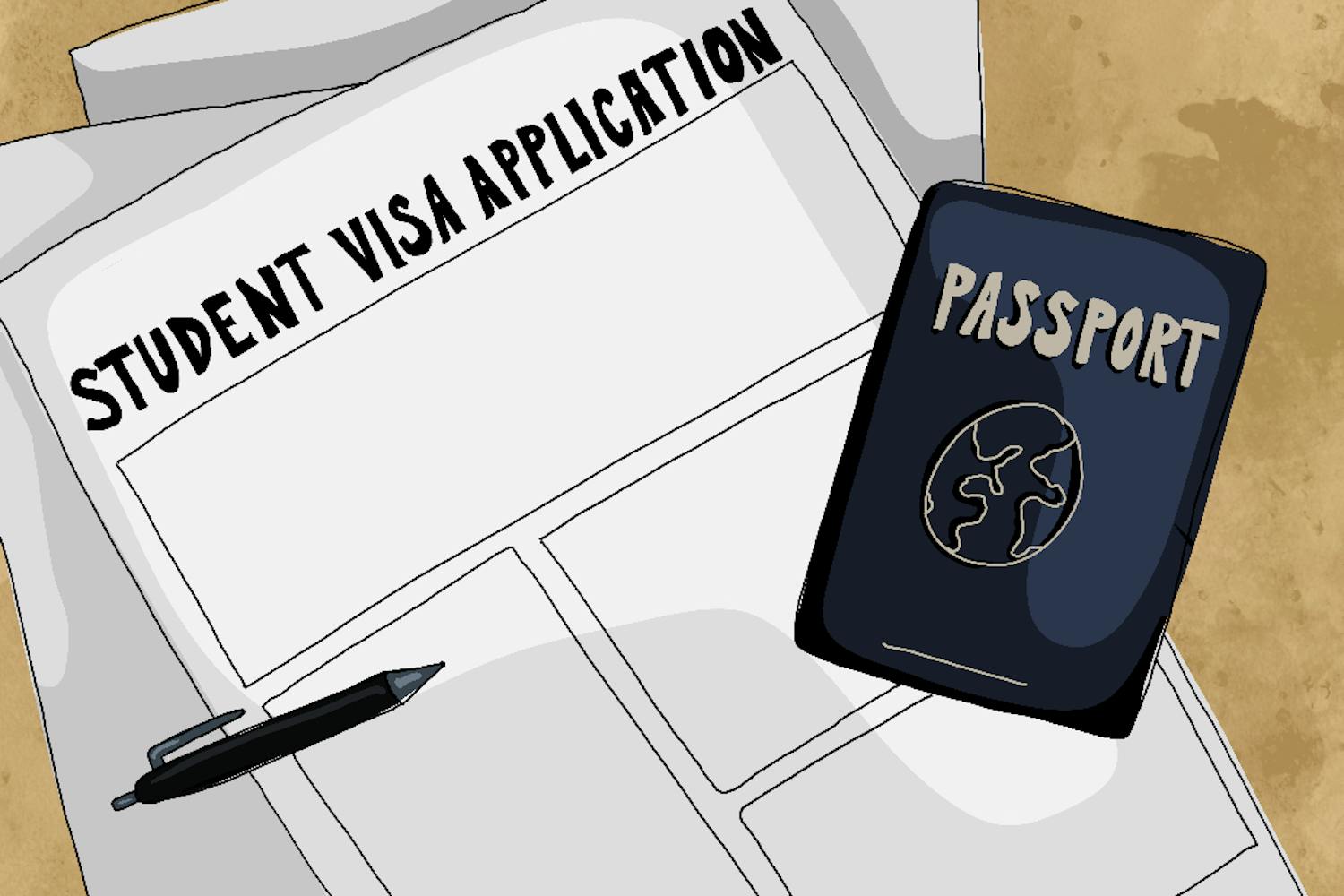ASU proudly promotes student civic engagement, yet it has yet to adopt a key policy to back that commitment — excusing classes on Election Day.
Many ASU students want to take an active role at polling sites, but class schedules prevent it. Excusing classes would give students the time they need to actively participate in democracy without compromising academic responsibilities.
Katy Ann Dunn, a senior studying political science, said she is passionate about voter engagement and will be working at the polls on Election Day.
"I already voted by mail, but I'm working at the polls, so I'm going to have to miss class that day," she said. "Missing class is the last thing I want to personally do. Because I'm a political science major, I want to do that stuff. I want to be there. I want to be an active part of it."
Allowing students to take the day off would foster a culture of civic engagement, especially among young voters who may not feel motivated to participate.
"I think every workplace and school should excuse class on Election Day, or at least give more grace on absence policy," Dunn said. "A lot of students are already not inclined to vote because they're young voters ... (it's) a positive reinforcement universities can do."
Amanda Lugo, the Arizona senior campaign manager at All Voting is Local, sees tremendous potential in young voters exercising their rights.
"We do want folks to be able to vote, and voting in person on Election Day is a really great way to get students to be able to vote," Lugo said.
John Carlson, the director of the Center for the Study of Religion and Conflict and an associate professor of religious studies, said he recognizes the value of excusing students to vote.
"Universities should be some of our primary institutional incubators for civic obligations and understanding civic duties," Carlson said. "That includes everything that happens up until that point of casting a ballot, like thinking critically about what's happening in one's country, in one's state, in one's community."
For students who wish to take a more active role, like working at polling stations, excusing classes is particularly valuable. Lugo shared that in 2022, she worked with the Human Rights Campaign on an initiative to encourage more diverse participation in polling roles.
"When people see poll workers that are representative of their communities that they live in and vote in, they'll feel more comfortable casting their ballot," Lugo said. "Having opportunities for young people to be able to take time off of class to be a poll worker or monitor is really crucial to ensuring that youth that are voting on college campuses feel represented not only by elected officials but the folks that are helping them."
Jesus Rendon-Silva, a senior studying political science and philosophy, echoed the need for prioritizing civic engagement.
"When it comes to civic engagement or voter participation, the youth are becoming some of the most important voices that need to be heard," he said.
According to Tufts, 40.8 million eligible voters for the 2024 election are ages 18 to 27, giving the youngest generation of voters a big stake in the election if they make it to the polls.
Rendon-Silva recalled two years ago waiting two hours in line with his friend at the only on-campus voting location on the Tempe campus.
READ MORE: Where to vote on the four major ASU campuses
"Not every kid has two hours," Rendon-Silva said. "I remember one of my friends, who was an engineering major, he asked, 'How long is it going to be?' He unfortunately didn't vote because it was such a long time."
Some may argue that options like early voting and mail-in ballots make excusing classes unnecessary, however, early voting doesn't address all the barriers that young voters face, such as overloaded schedules or residing in dorms instead of at their permanent mailing address.
Dunn said it's important to be informed and vote down the full ballot because that is where we will see the most effect.
Young people have the potential to create change in our society, and it starts by exercising their democratic right to vote, which so many activists fought hard for. It's a celebration of democracy.
"I am always impressed by youth," Lugo said, acknowledging the historical importance of youth movements, from the Civil Rights Movement to the present. "Seeing youth being excited about voting is something that is really encouraging to me."
In a time when every vote matters, excusing classes on Election Day isn't just an accommodation; it's an investment in student civic participation.
Edited by Alysa Horton, Sophia Braccio, Alexis Heichman and Natalia Jarrett.
Reach the reporter at emuslim@asu.edu and follow @emra_m1 on X.
Like The State Press on Facebook and follow @statepress on X.
Emra is a junior studying political science with a minor in Spanish. This is her first semester with The State Press. She has also worked at the League of Women Voters of Arizona, USG-WV, Honors College Council at Barrett and the Center for the Study of Religion and Conflict.




